Students’ self-governance on campus: students design dormitory kitchens
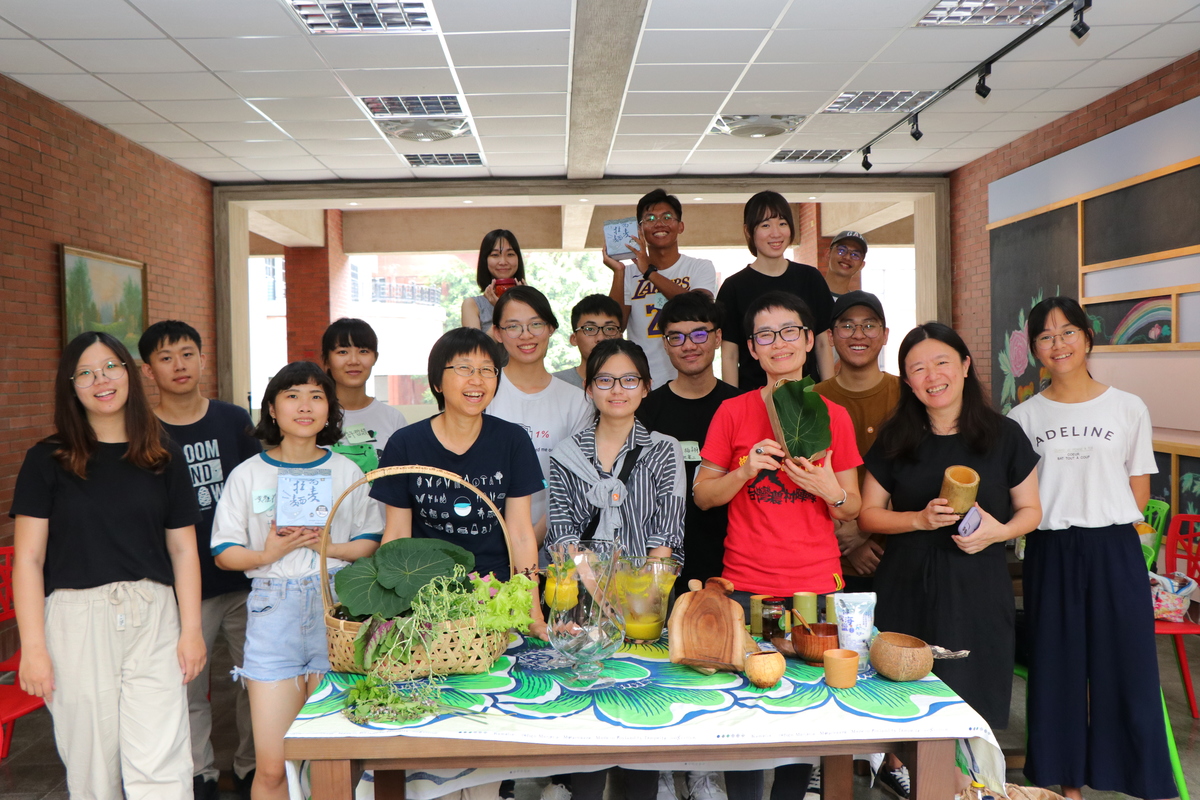
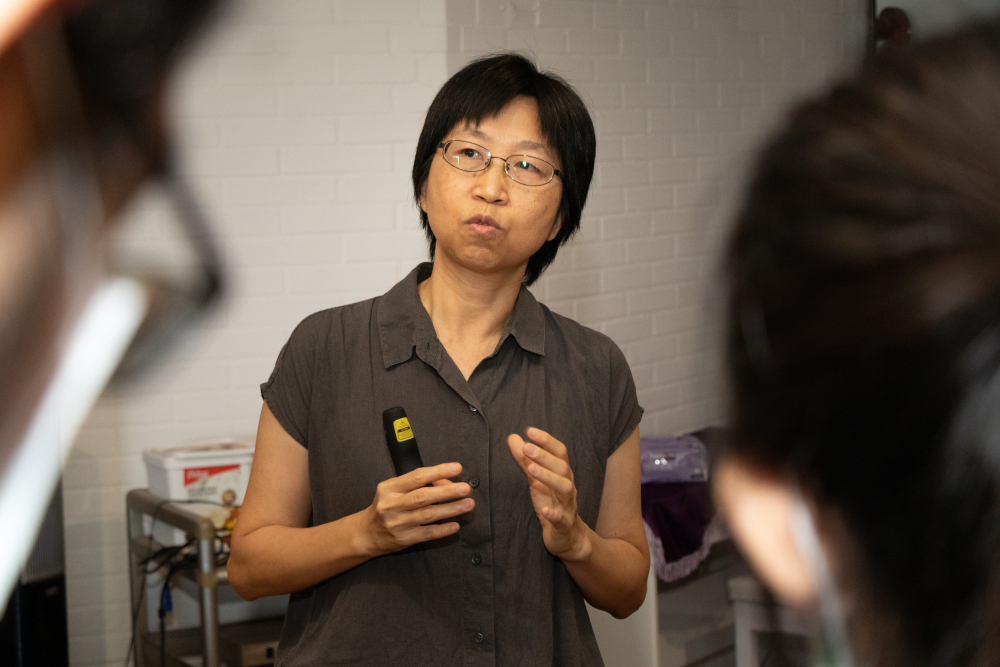
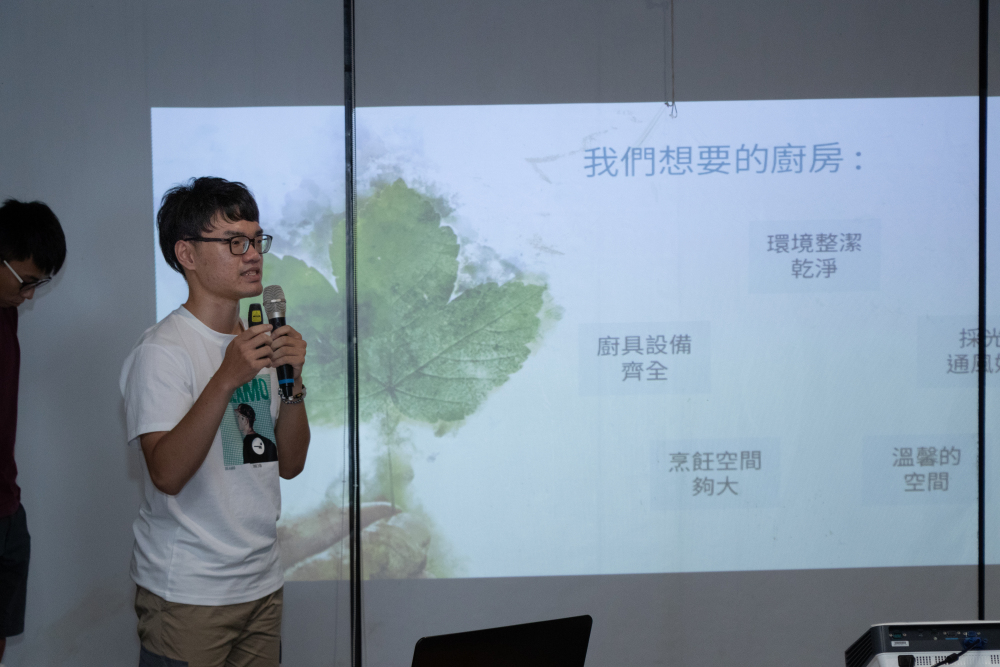
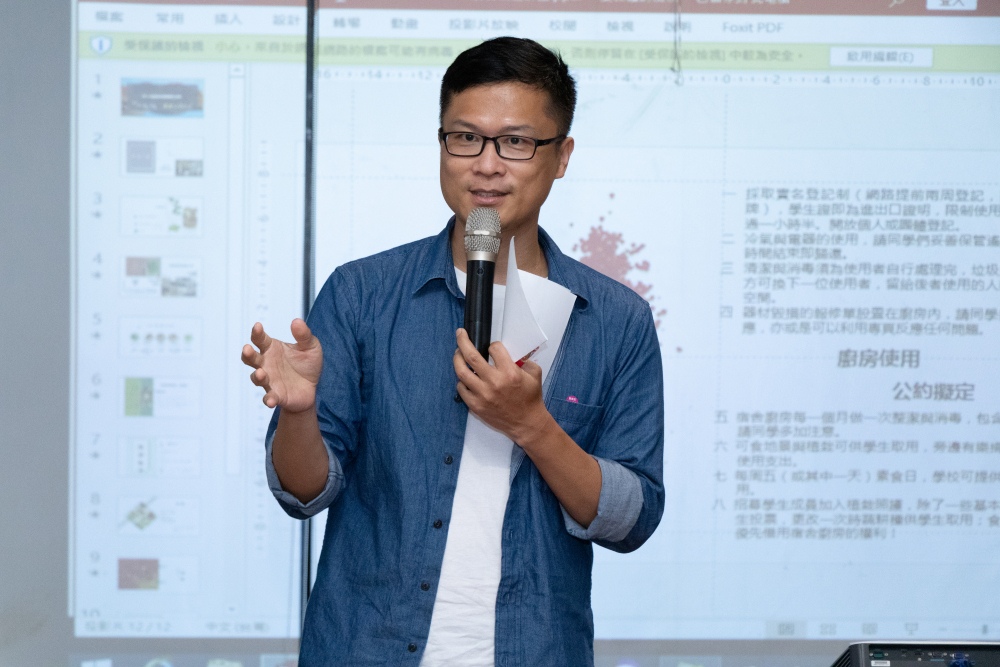
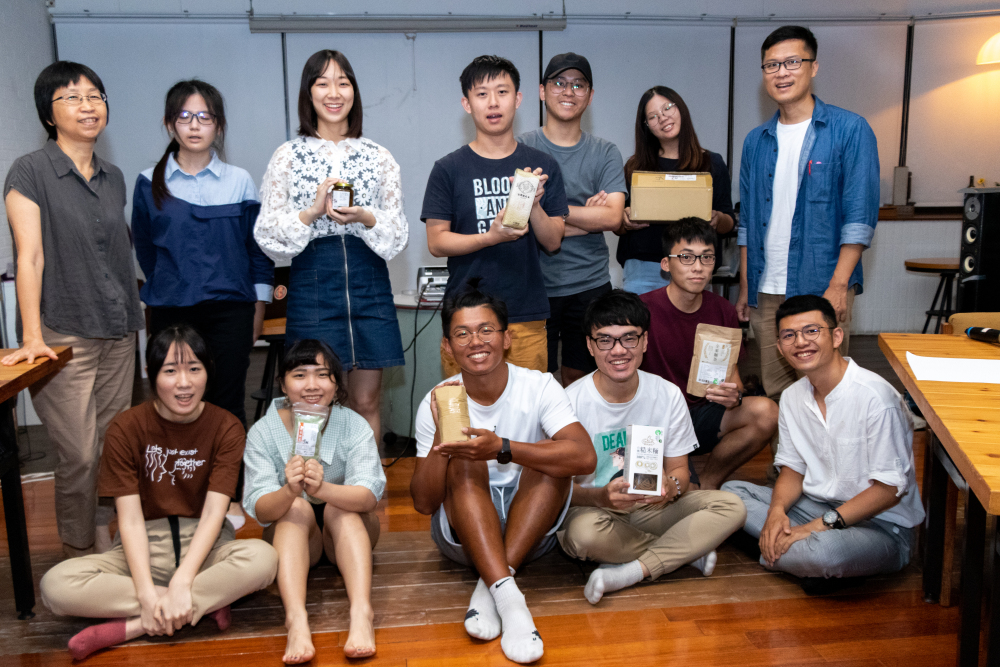
(Provided by the Department of Sociology) What if the students could design dormitory kitchens tailored to their needs? As part of the microcourse on Sustainable Development and Social Innovation and the USR-C Project “City as a Commuseum-Socially Embedded Community Engagement", National Sun Yat-sen University organized a workshop on dormitory kitchen design. The students reported the present situation of the kitchens in their dormitories and designed a comprehensive remodeling plan, which included both the interiors and exteriors, equipment, and management system. The students and teachers engaged in a brainstorm to come up with a project of a kitchen that would be tailored to the needs of the residents of the dormitory.
The supervisor of the microcourse, Associate Professor Hua-Mei Chiu said that in the past, she organized a series of classes on the Sociology of Food and Agriculture for the students of the microcourse on Sustainable Development and Social Innovation. The classes combined theory with practice and gave a start to such initiatives as the rooftop garden with an edible landscape on the rooftop of the College of Social Sciences, kept by a team of volunteers. During these classes, the students came up with the idea of designing a cooking space in the dormitories. In 2019, the Office of Student Affairs built a simple kitchen in the Dormitory C of the Wuling Villa and is planning to build new kitchens in the Dormitory D of the Wuling Villa and the Dormitories B and C of the Tsuiheng Villa. This seemed to be the best time to organize a workshop on the dormitory kitchen design. The special guest Nan-Chi Wang - author of a well-known cookbook in Taiwan, Professor Shiau-Yun Lu of the Department of Marine Environment and Engineering, Director of the Dorm Service Center Chi-Lun Huang and the team of the USR-C Project “City as a Commuseum-Socially Embedded Community Engagement” engaged in a debate with the students on the design of user-friendly dormitory kitchen.
The students used the concepts mentioned during the workshop and user experience survey to design an ideal dormitory kitchen tailored to students’ needs. They gathered students’ suggestions about the kitchen environment (insufficient equipment, poor space management) and took them into consideration when designing the plan. The next kitchen is planned to be built in the dormitory basement. Good lighting and ventilation were the priority to the students, as well as the integration of the kitchen with a garden with an edible landscape. The students expressed different opinions about the interior design and the equipment of the kitchen, such as an induction cooker, microwave oven, and other additional appliances. They also wanted the appliances to be energy efficient and hoped to make it possible for the students to use different kitchen implements at the same time.
In addition, the students reflected on how to design the kitchen to make it cozy, get its users to interact, and want to come back again. They also wanted the kitchen to be a place where they could organize regular lectures and invite dietitians, cooks, farmers to share the knowledge of food and diet with the students. Regarding the management, the students reflected on how to effectively maintain an area for common use, in addition to providing traditional user instructions. This has been so far the biggest problem of the dormitory kitchens to be solved. Associate Vice President for Student Affairs Chin-Ping Yu and Director of the Dorm Service Center Chi-Lun Huang engaged in a debate with the students and presented various models of management, such as students’ self-management, joint management of by the students and the university, or joint review and establishment of a list of management regulations. Some students expressed their vivid interest in the next elections of the Student Dormitory Committee and in changing the present situation with a strong self-governance team of students and by discussing with the University.
(Edited by Public Affairs Division)
The supervisor of the microcourse, Associate Professor Hua-Mei Chiu said that in the past, she organized a series of classes on the Sociology of Food and Agriculture for the students of the microcourse on Sustainable Development and Social Innovation. The classes combined theory with practice and gave a start to such initiatives as the rooftop garden with an edible landscape on the rooftop of the College of Social Sciences, kept by a team of volunteers. During these classes, the students came up with the idea of designing a cooking space in the dormitories. In 2019, the Office of Student Affairs built a simple kitchen in the Dormitory C of the Wuling Villa and is planning to build new kitchens in the Dormitory D of the Wuling Villa and the Dormitories B and C of the Tsuiheng Villa. This seemed to be the best time to organize a workshop on the dormitory kitchen design. The special guest Nan-Chi Wang - author of a well-known cookbook in Taiwan, Professor Shiau-Yun Lu of the Department of Marine Environment and Engineering, Director of the Dorm Service Center Chi-Lun Huang and the team of the USR-C Project “City as a Commuseum-Socially Embedded Community Engagement” engaged in a debate with the students on the design of user-friendly dormitory kitchen.
The students used the concepts mentioned during the workshop and user experience survey to design an ideal dormitory kitchen tailored to students’ needs. They gathered students’ suggestions about the kitchen environment (insufficient equipment, poor space management) and took them into consideration when designing the plan. The next kitchen is planned to be built in the dormitory basement. Good lighting and ventilation were the priority to the students, as well as the integration of the kitchen with a garden with an edible landscape. The students expressed different opinions about the interior design and the equipment of the kitchen, such as an induction cooker, microwave oven, and other additional appliances. They also wanted the appliances to be energy efficient and hoped to make it possible for the students to use different kitchen implements at the same time.
In addition, the students reflected on how to design the kitchen to make it cozy, get its users to interact, and want to come back again. They also wanted the kitchen to be a place where they could organize regular lectures and invite dietitians, cooks, farmers to share the knowledge of food and diet with the students. Regarding the management, the students reflected on how to effectively maintain an area for common use, in addition to providing traditional user instructions. This has been so far the biggest problem of the dormitory kitchens to be solved. Associate Vice President for Student Affairs Chin-Ping Yu and Director of the Dorm Service Center Chi-Lun Huang engaged in a debate with the students and presented various models of management, such as students’ self-management, joint management of by the students and the university, or joint review and establishment of a list of management regulations. Some students expressed their vivid interest in the next elections of the Student Dormitory Committee and in changing the present situation with a strong self-governance team of students and by discussing with the University.
(Edited by Public Affairs Division)
Click Num:
Share
